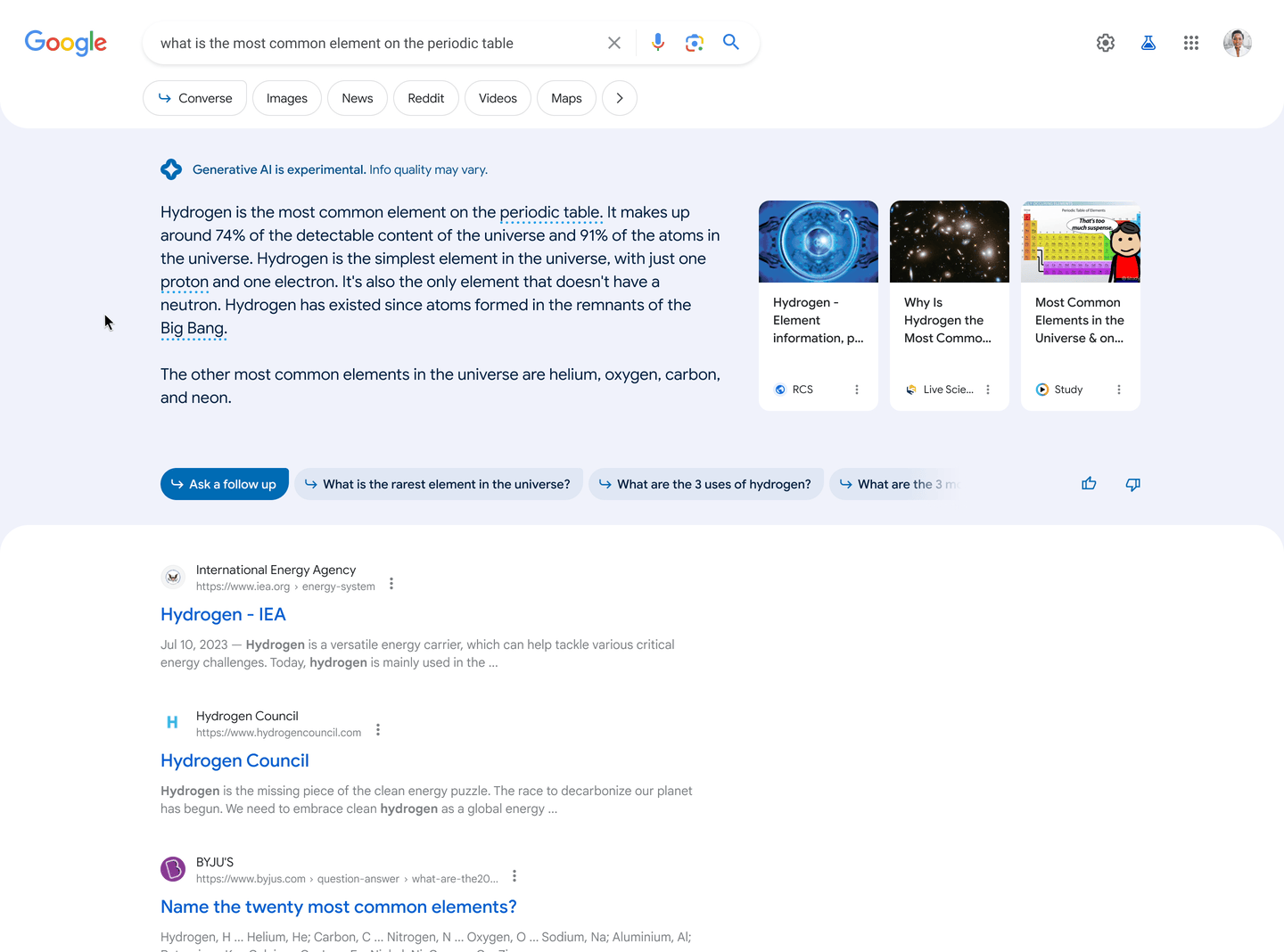Google Chrome just got an AI-powered upgrade — TLDR summaries of articles
AI summaries are here

Here at Tom’s Guide our expert editors are committed to bringing you the best news, reviews and guides to help you stay informed and ahead of the curve!
You are now subscribed
Your newsletter sign-up was successful
Want to add more newsletters?

Daily (Mon-Sun)
Tom's Guide Daily
Sign up to get the latest updates on all of your favorite content! From cutting-edge tech news and the hottest streaming buzz to unbeatable deals on the best products and in-depth reviews, we’ve got you covered.

Weekly on Thursday
Tom's AI Guide
Be AI savvy with your weekly newsletter summing up all the biggest AI news you need to know. Plus, analysis from our AI editor and tips on how to use the latest AI tools!

Weekly on Friday
Tom's iGuide
Unlock the vast world of Apple news straight to your inbox. With coverage on everything from exciting product launches to essential software updates, this is your go-to source for the latest updates on all the best Apple content.

Weekly on Monday
Tom's Streaming Guide
Our weekly newsletter is expertly crafted to immerse you in the world of streaming. Stay updated on the latest releases and our top recommendations across your favorite streaming platforms.
Join the club
Get full access to premium articles, exclusive features and a growing list of member rewards.
Google Bard may be the most prominent AI tool from Google, but it’s not the only one. Google has also slowly rolled out Google Search Generative Experience (SGE) — an AI-powered version of its popular Google Search product.
Today (August 15) Google announced via blog post that SGE is getting three big AI upgrades. Starting today Google has launched a new "SGE while browsing" Search Lab feature. This will allow SGE to work outside of the traditional Google Search page.
Google SGE is also getting an option to provide definitions within its AI-generated search responses. SGE will also get a boost for programmers, getting some of Bard’s code debugging features.
Not all of these updates are rolling out immediately, and even those that are may not be available to you right away. Check out our guide on how to sign up for Google Search Labs if you want to sign up for these new AI features, and keep checking to see if you get access as these new features roll out.
Now, let’s take a look at the three new AI features coming to Google SGE.
Browsing the web with SGE AI

The biggest news is that SGE, which is currently only available when you’re using Google Search on desktop or mobile, is going to be able to follow you along as you browse the internet. SGE while browsing can generate notes on the key elements of an article as well as the ability to explore the page deeper, sending you directly to relevant sections. This feature only works on freely available articles — it does not work on paywalled articles.
This feature will be available on iOS and Android via the Google app starting today and will roll out to desktop in the coming days. If you’ve already signed up for SGE, you’ll automatically be enrolled in the SGE while browsing Search Lab. If you haven’t already signed up for SGE via Google Search Labs, SGE while browsing will be available to you as a standalone experiment.
Get instant access to breaking news, the hottest reviews, great deals and helpful tips.
AI-generated definitions

Another coming to SGE is a great tool for those who use AI as a research tool. Coming soon, this feature will allow you to hover over select terms to preview related definitions, as well as see images and diagrams to provide further context. It’s unclear how this feature will work on mobile devices, but given SGE also works on iOS and Android I expect there will be similar functionality on mobile.
One thing to bear in mind when using AI for research is that AI gets things wrong — a lot. So while these AI-generated definitions will be largely helpful, it’s always good to double-check information through more conventional means.
AI coding upgrades for SGE
If you’re like me, you’re not using AI for coding often if at all. But it’s undeniable that one of the great features of generative AI like Bard and ChatGPT is that they can make coding and debugging code much easier and quicker.
This latest upgrade will bring SGE’s coding functionality closer to what other AI chatbots can provide."
Now, SGE is going to borrow some of that functionality. This new update to Google’s AI-powered version of Search will be able color-code segments of code with syntax highlighting so you can easily identify keywords, comments and strings. SGE can already provide answers related to coding and even suggest code snippets for common tasks, but this latest upgrade will bring SGE’s coding functionality closer to what other AI chatbots can provide.
More from Tom's Guide
- Google’s AI-powered search results may soon show citations
- Don't 'Bard it' — Google says you should still Google it to be safe
- Google Assistant could soon use AI to summarize long articles

Malcolm has been with Tom's Guide since 2022, and has been covering the latest in streaming shows and movies since 2023. He's not one to shy away from a hot take, including that "John Wick" is one of the four greatest films ever made.
 Club Benefits
Club Benefits










